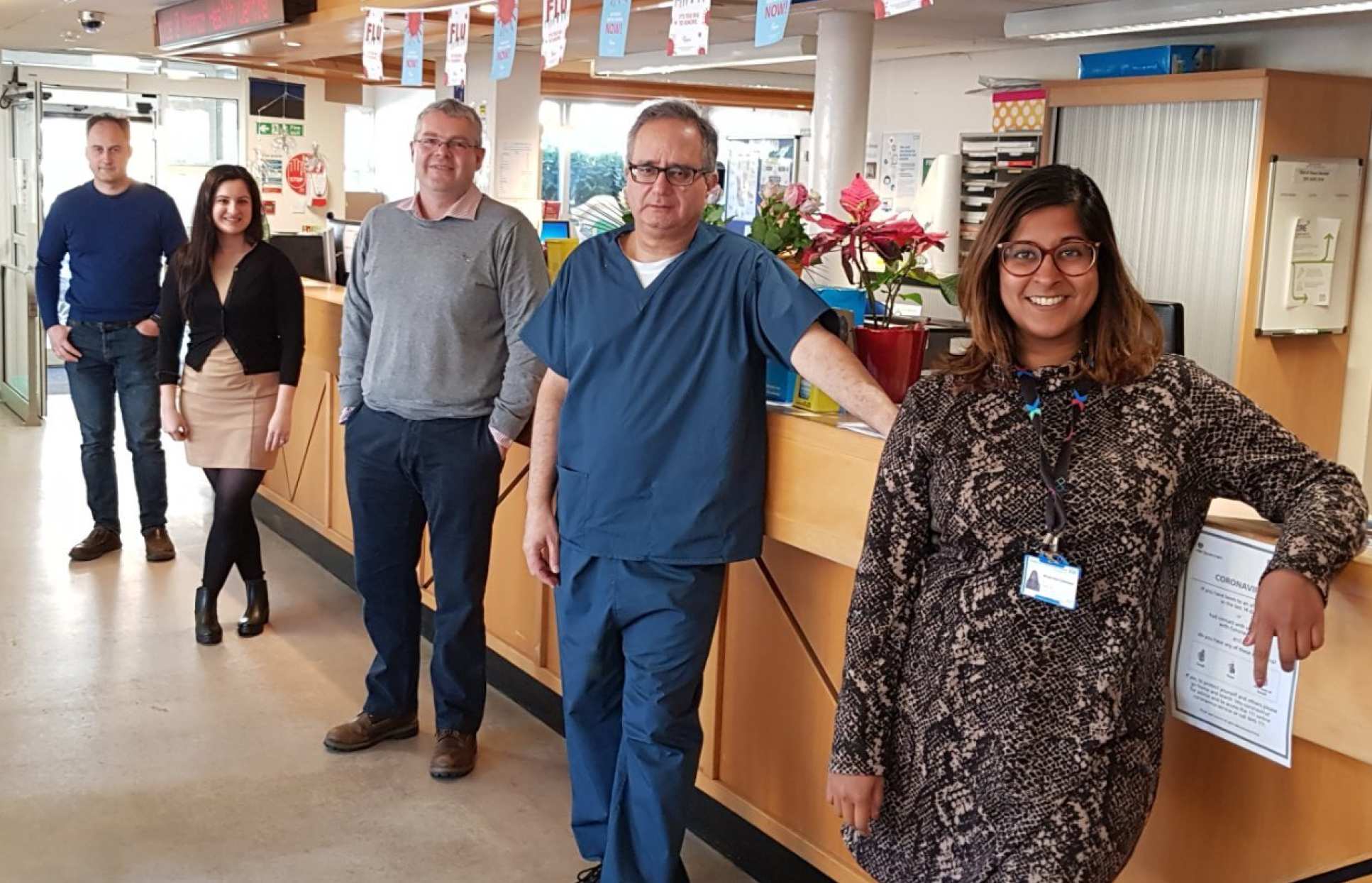Lockdown advice from a GP: Stay active, keep in touch, don’t ignore vaccinations
by Ryan O'Hare

From the start of the coronavirus outbreak, much of the focus has been the acute impact of COVID-19 on critical care capacity in hospitals.
But primary care – which includes GP services and walk in clinics – has also had to adapt quickly to the challenges to ensure patients can continue to access health services.
Since March, social distancing measures have emptied the busy waiting rooms typical of GP surgeries across the UK, as doctors move to carry out patient consultations over telephone and video and fulfil prescriptions electronically.
Professor Azeem Majeed, Head of the Department of Primary Care & Public Health at Imperial and a practising GP, is one of those dealing with the frontline challenges in primary care at a clinic in South London.
“We’re trying to do what we can by phone and video. Occasionally people need to come in for a blood test or vaccination, but these people are being seen separately from the other patients, and we are trying to minimise their footfall in clinics,” he explains.
“We are dealing with lots of people with possible symptoms of COVID-19, by and large we’re dealing with them by phone if possible or by video.”

Early in the outbreak, these patients may have been seen at the clinic by staff wearing PPE, he explains. But COVID-19 hubs have now been established where patients that need assessment in person can go to be seen, rather than attending their local GP surgery.
Long-term concerns
Such measures for handling and triaging patients with COVID-19 are helping, says Professor Majeed, but the acute pressures facing hospitals are bringing fresh challenges for primary care, including how patients are referred on for hospital services.
I think there's concern that if this goes on for a long time, more than a few months, it will affect people's health, particularly older people. Professor Azeem Majeed School of Public Health
Some hospitals are having to delay routine appointments and treatments, such as colonoscopies or physiotherapy which is leading to a shift in how GPs refer patients or obtain second opinions, explains Professor Majeed.
With outpatient services reduced, GPs are increasingly discussing case details with consultants over the phone, in some cases, avoiding the need for patients to attend physical appointments at their local hospital.
However, while primary care is adapting to these challenges, there are concerns over the potential long-term impact on patients’ health if the interim measures are prolonged.
“You can put routine health checks off for a period of time, but that can’t go on forever,” explains Professor Majeed. “I think there's concern that if this goes on for a long time, more than a few months, it will affect people's health, particularly older people.”
“The other concern is how people react to being isolated for long periods,” he adds. “This really is something we have never faced before in the UK on this scale, with so many people being isolated due to age or health, and how that will impact on their physical and mental wellbeing.”
Don’t ignore vaccines
While COVID-19 has led to an unprecedented shift in daily life, doctors are keen to highlight the importance of maintaining preventative elements of healthcare wherever possible, such as sticking to appointments for scheduled vaccines.
“If you are an adult who needs a vaccination or a parent who has a child who needs vaccination, please don't ignore that,” said Professor Azeem. “Those vaccinations are very important for you and for the NHS, so please do get your vaccinations for yourself or your children if those are due.
Most people will recover from COVID-19... but if you are deteriorating then please do seek advice urgently. Professor Azeem Majeed School of Public Health
Overall, however, the long-term preventative health advice remains much the same. Doctors advise people to continue eating a healthy, balanced diet, keep active and not to drink too much alcohol. The respiratory complications associated with coronavirus mean quitting smoking remains high on the list.
“If you're a smoker, now's the time to give up, because people who smoke have a much worse prognosis if they are infected with COVID-19,” adds Professor Azeem.
The message of staying home to protect the NHS has been clear among the public, but doctors stress that if people do become sick with coronavirus symptoms, they should seek help if they need it.
“Although we're trying to manage people with COVID-19 infections at home, some people do unfortunately develop complications,” explains Professor Majeed.
“If you are deteriorating and you become very breathless, a bit confused, lethargic, and you are getting worse, please do seek medical advice. There have been cases of people who have not sought medical advice and unfortunately who have become very seriously ill at home and some have died.”
He adds: “Most people will recover from COVID-19, particularly if you are a young, fit person. But there are some people who will develop complications, such as pneumonia, so if you are deteriorating then please do seek advice urgently.”
Listen to the full audio interview with Professor Azeem Majeed (recorded 3rd April) on Imperial's Soundcloud.
Follow @Azeem_Majeed on Twitter.
Article text (excluding photos or graphics) © Imperial College London.
Photos and graphics subject to third party copyright used with permission or © Imperial College London.
Reporter
Ryan O'Hare
Communications Division